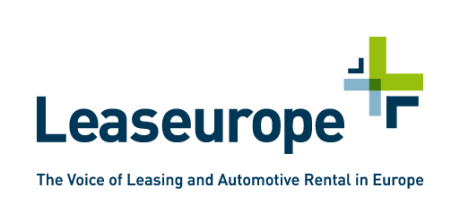In association with Leaseurope and Eurofinas
Summary
ESG considerations in asset finance
Asset finance providers are working with clients on decarbonisation levers across transport, IT hardware and software and, for larger purchases, structured asset finance. These developments are being driven by new legislation, including EU and UK sustainability reporting regulations, and evolving market expectations.
In particular, net zero targets in the automotive sector – a 2035 target to phase out the sale of new internal combustion engine (ICE) vehicles – is driving capital providers and auto fleet owners to reassess forward-looking asset valuations. The scale of the automotive industry and technology advances in battery technology for long haul freight and bus fleets is having positive knock-on effects in the rail industry.
The UK rail industry is poised for major structural changes enroute towards the government goal of removing all diesel-only trains (both passenger and freight) from the network by 2040. Beyond emissions, social impact and biodiversity issues are beginning to come onto the agenda.
Data challenges remains
Gathering emissions data in a consistent way remains a challenge, both for fleet owners and operators and lenders. Scope 1 and Scope 2 emissions, which cover operations, provide a starting point for the process of creating emissions baselines for reporting purposes, and target setting. At present, starting the data collection process is the biggest challenge, as standards and processes exist once this is underway.
Beyond direct emissions accounting, value chain emissions represent a more complex data gathering exercise, requiring supplier engagement and updating of expectations for clients and other stakeholders. In particular, understanding and tracking fleet metrics, such as a miles per gallon, and grid-level emissions intensity metrics for electric vehicles, represents a new challenge for the industry.
For asset finance providers, assessing their financed emissions – Scope 3, Category 15 in emissions accounting speak – is a challenge that firms are having to come to grips with to meet reporting expectations in the UK and beyond.
Many finance companies are struggling with Scope 3 emissions data collection and reporting because their reporting covers a full range of activities requiring a diverse data set. A vast array of target guides and directives along with international standards cause confusion for companies who are unsure which framework is best to use.
Public procurement reinforces regulatory drivers on net zero
Beyond aspirational government goals, public procurement budgets are encouraging fleet operators and manufacturers to shift to electric vehicles. In the UK, all companies bidding for government contracts worth more than £5million a year are expected to commit to achieving net zero emissions by 2050, for example.
Alongside government procurement levers, corporate interest in low emissions fleets is supporting new financing innovations. If both corporate and government users of leased transport and IT products accelerate their net zero transition plans, this is likely to move the market faster than is currently expected. This could lead to reappraisals of asset life for emissions intensive assets and asset write-downs.
Beyond demand drivers, a host of new regulatory and voluntary standards raises questions for capital providers. From the EU Green Taxonomy to the Green Claims Directive, capital providers and operating companies are under increasing pressure to substantiate sustainability claims across all industries.
Beyond advertising standards and classification systems for business operations, financial reporting standards are also becoming more consistent, with ISO 14001 (environmental standards), ISO 32210 (sustainable finance), and the International Sustainability Standards Board (ISSB)’s raft of new guidance highlighted as setting new expectations for more standardised reporting by financial services players.
Unknown unknowns in the sustainability transition
Residual values and secondary markets for ICE vehicles remain a large question mark. For the rolling stock industry, the potential write-down of asset values implied by the government’s 2040 phaseout of diesel-powered trains has yet to be integrated into financial planning or client dialogues. Given policy uncertainty in a number of key asset finance industry segments, many are waiting to see if governments are in fact able to follow through on ambitious goals before seeking to transform business models.
Circular economy developments remain uneven, with asset owners and finance providers unsure of how technology and government regulation will influence decommissioning and recycling requirements across asset types in the UK.
Technology pathways are also uneven with hydrogen trains flagged as a promising technology that is still in a testing phase.
Despite a number of technology, policy and market-led uncertainties, all participants were confident that the industry was ready to adapt, with a focus on the ability of software tools to streamline data collection and reporting processes and enable industry-scale transitions.
As one participant summarised, “asset finance providers need to adapt and drive the change to survive in the current and future markets.”



